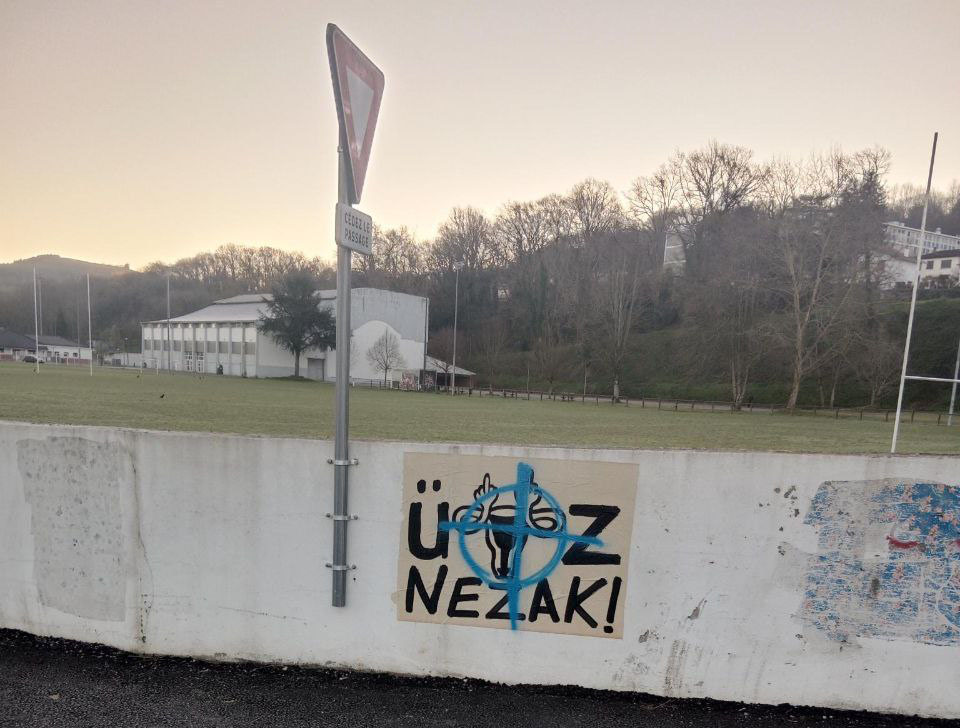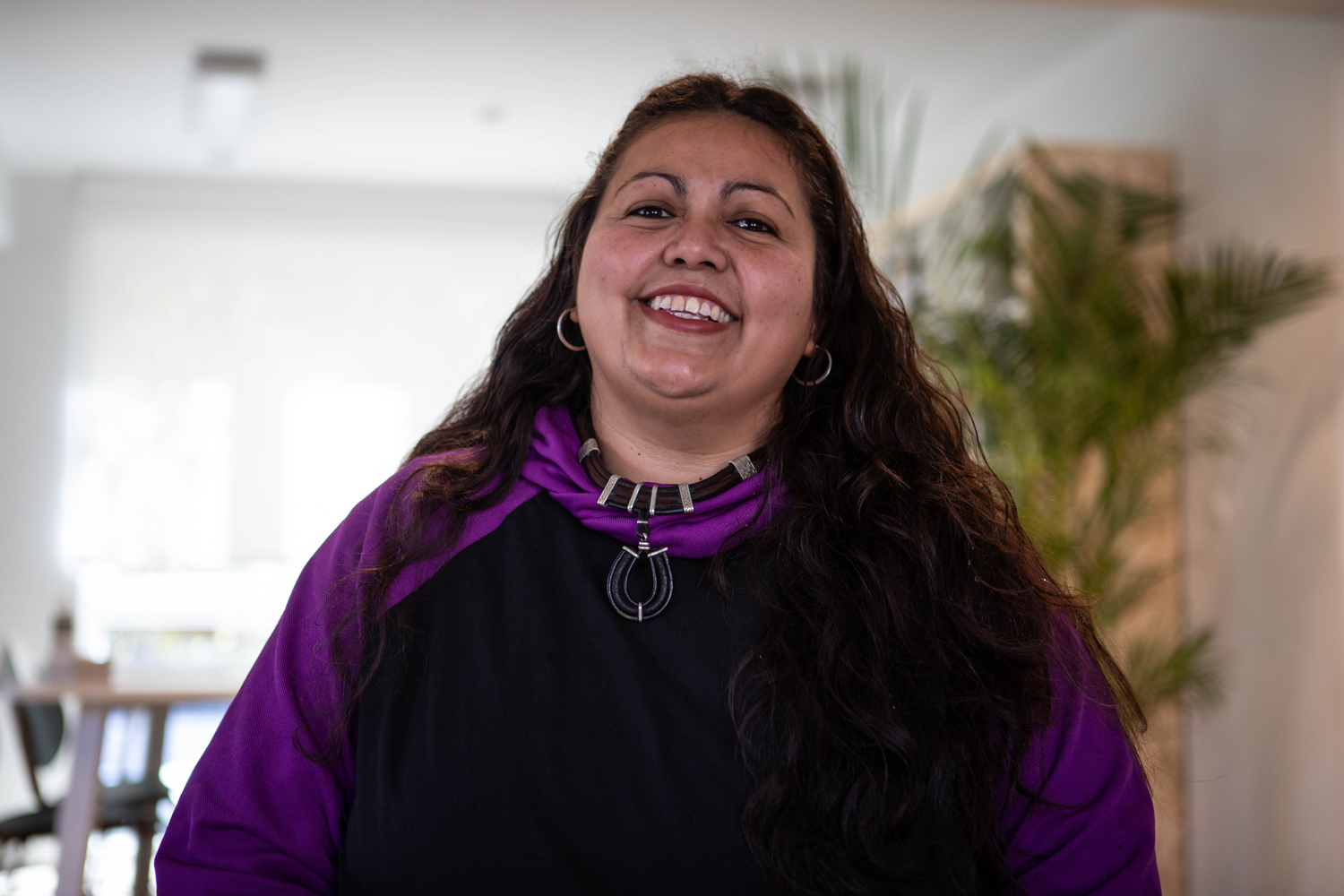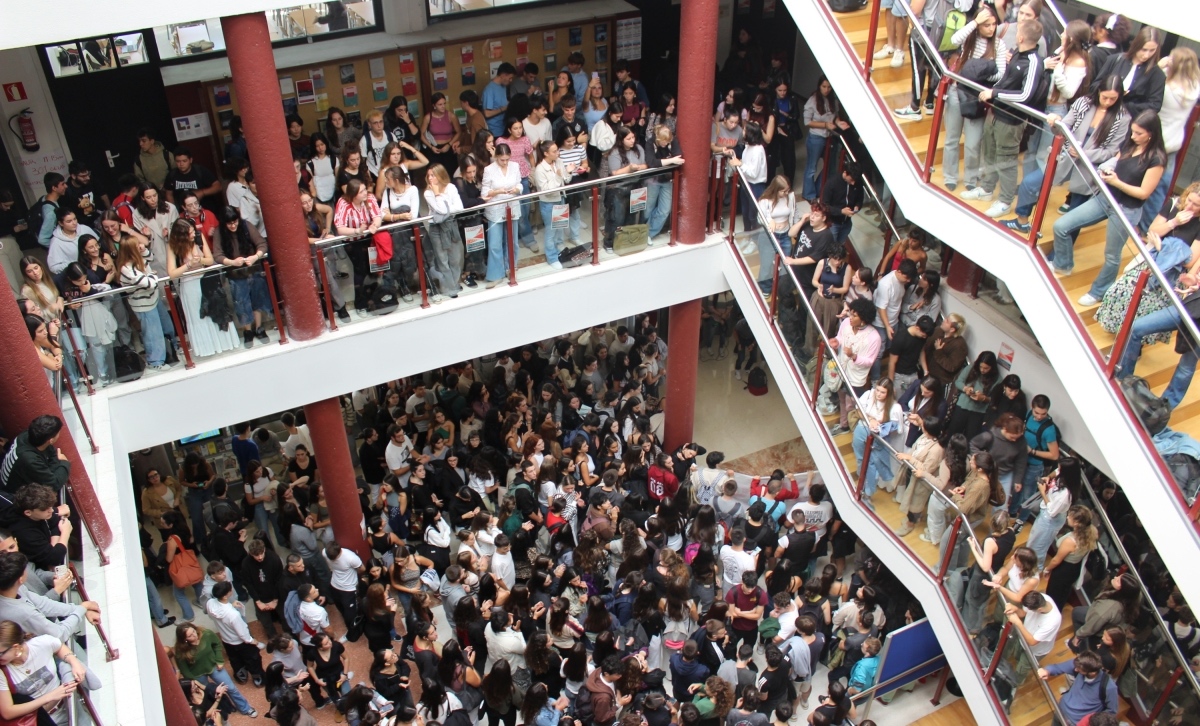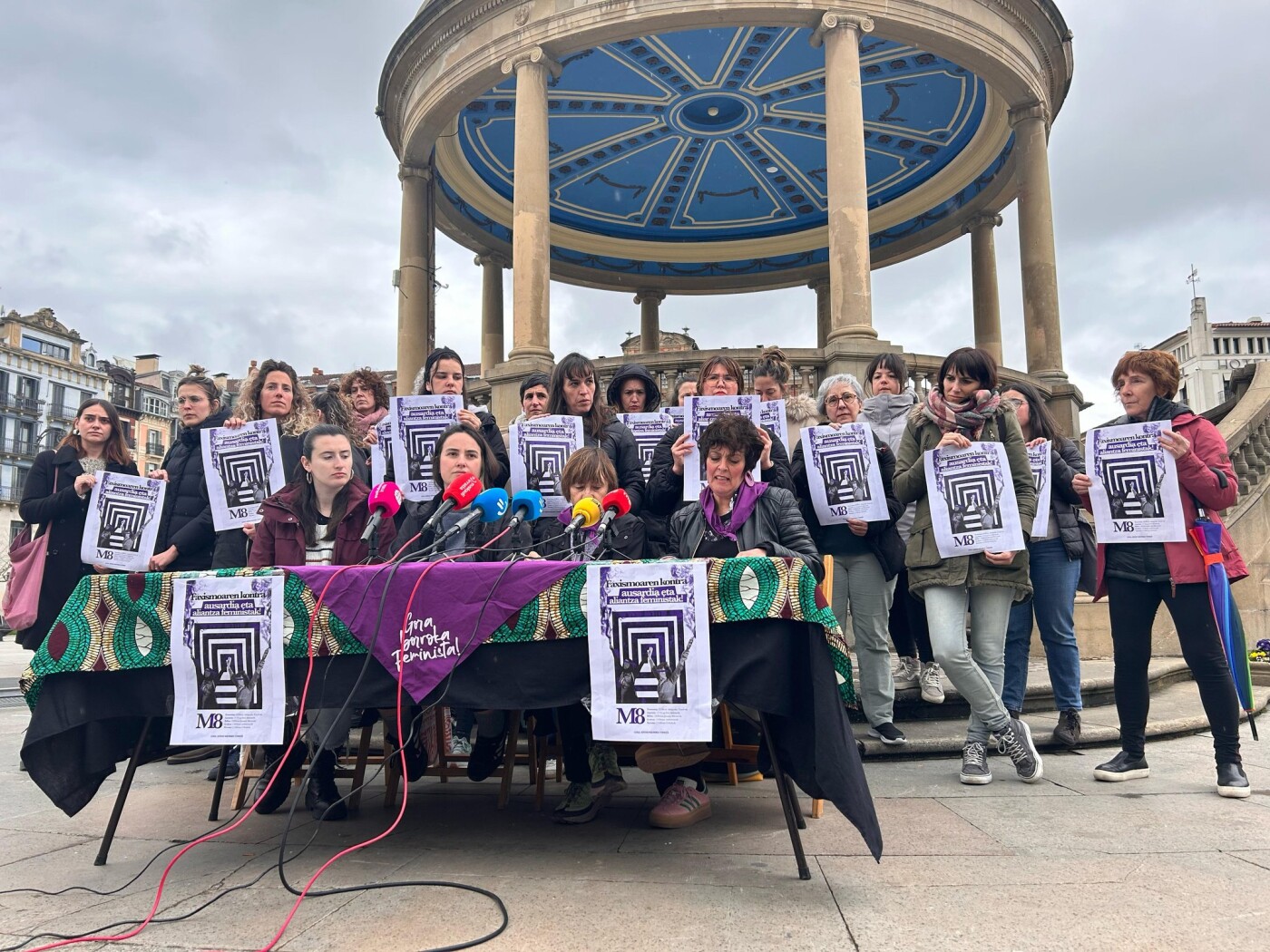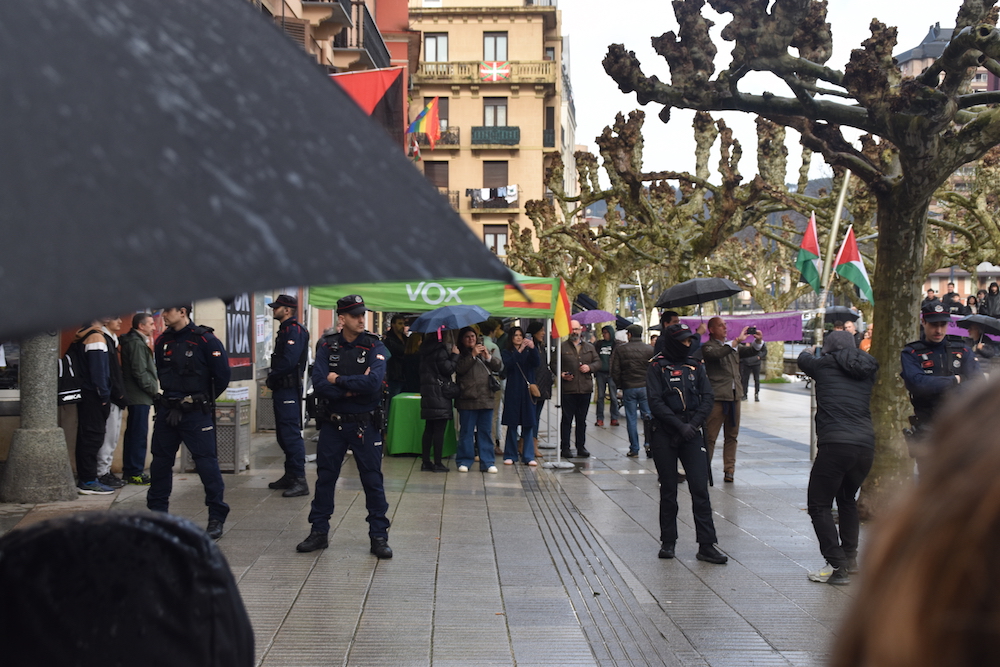Custom-made networks on the far right, fodder to feed hatred
- This kind of content is allowed by social networks, which should also have responsibility for this issue. But nobody seems to be going to take action. They've punished social media, but never in that sense, because it doesn't care. And it's that in a society where emotions overlap, polarization and confrontation are the most visited. Disinformation, moreover, is not illegal. There is no law to say so. Yes, on the contrary, if it is committed with a will that would involve committing a crime, for example, disseminating information aimed at spreading hatred towards immigrants, knowing previously that it is false. What happens? “I didn’t know it was a lie,” that all of the above is null. It's cheap to lie and it's cheap to hate. For the far right, it's the perfect game rule, and the losers will always be the same, the most vulnerable groups.

Summer has been hot, especially the month of August. The storm, which arrived on 29 July, made the embarrassment unbearable. It is precisely that same day in late July that the crime that shook the city of Southport in the north-west of England took place, when a 17-year-old girl stabbed three six-, seven- and nine-year-old girls and injured half a dozen people at a festival. How racist and xenophobic discourses multiplied in the countryside during the summer, mosquitoes broke into lies, fake information on purpose, old, manipulated images ... This is, deep down, the ideal time for the extreme right: storm.
The world of social networks is diffuse, alive and massive. The information comes in the form of bombardment, every second. And about the Old Brother: algorithm. It doesn't matter who you follow and who doesn't. If you've seen a video where a group of racists insults and hits a young Maghreb, for ten seconds, you've done it. The algorithm will annoy you.
Without data, it can be said that racist and homophobic speeches have spread on social media on many occasions, this summer, more than otherwise. At least on Twitter or on X. This cannot be demonstrated in such a vague world, where diffumination implies a serious lack of verification of all information, and this is probably the biggest problem of social networks: it is not certain whether the video, image or information in question is true or false, is manipulated, and as important as the previous ones, is the date.
Even the most anecdotal event, the one that a few years ago became 'viral', now you do it on Instagram or on X and more than one will believe it happened today, yesterday or recently.
Even the most anecdotal event, viral a few years ago, now you do it on Instagram or on X, and more than one will think it has happened today, yesterday or recently. For example, during the days of the gathering of the living tides, the large waves and the strong wind, a recorded video is broadcast in the port of Zarautz in which three or four young people appear making the txorou, “playing” with the sea, endangering their lives. The video commentary usually says: “Today in Zarautz. We're crazy." This video will, however, be fifteen years old. But you know, anyone who hasn't seen the video, or doesn't remember, will think it's recorded today.
There will be someone who has good memory and someone will say that it is not current. In this way, if someone has believed that the video is from today, they will know that the information was false, that it is not from today, misleading. But surely some will continue to believe that this has happened today.
It changes this anecdotal event for anything else. Put in some video event that can spread hatred against a group. A Maghreb steals in a supermarket. Open once a year. How many cases of theft will we generate from a single event? And how many stereotypes are constructed and fears generated from a single case?

I was Maghreb the killer of Southport, in England. He emigrated in an irregular situation. A person's photograph circulated on social media from the very first moment of the event, although the next day the prosecutor said that the person was not a murderer or looking for anyone. However, they continued to spread their image, as well as many other information. From a legal point of view, it is illegal to blot the image of an innocent and put it into shape; and ethically, let us not say.
In England, since the incident, everything had taken hold. Xenophobic and racist speeches took the bellows. The far right organized mobilizations using social media channels. To respond to the idea of “a Maghreb has killed three indigenous children,” as “revenge,” it was an appeal to go out into the street and protest. And they did. In the first week of August, thousands of people took to the streets with racist speeches that had not been seen long ago, to awaken hatred against immigrants. They attacked mosques, houses and supervised buildings in which many immigrants live, and other non-white individuals, “non-indigenous” street beggars...
The UK Police have arrested at least 400 people in these demonstrations, who have also been subjected to "revenge". The protesters stood against the police, saying in some way that the police “defends immigrants”, that the police was carrying out these kinds of burdens and disturbances; where the “freedom of expression” remains; that the “fault of the government” was of what happened in Southport for allowing the entry of immigrants; “knows the social benefits they have”; “earn more with state aids than in the labor.”
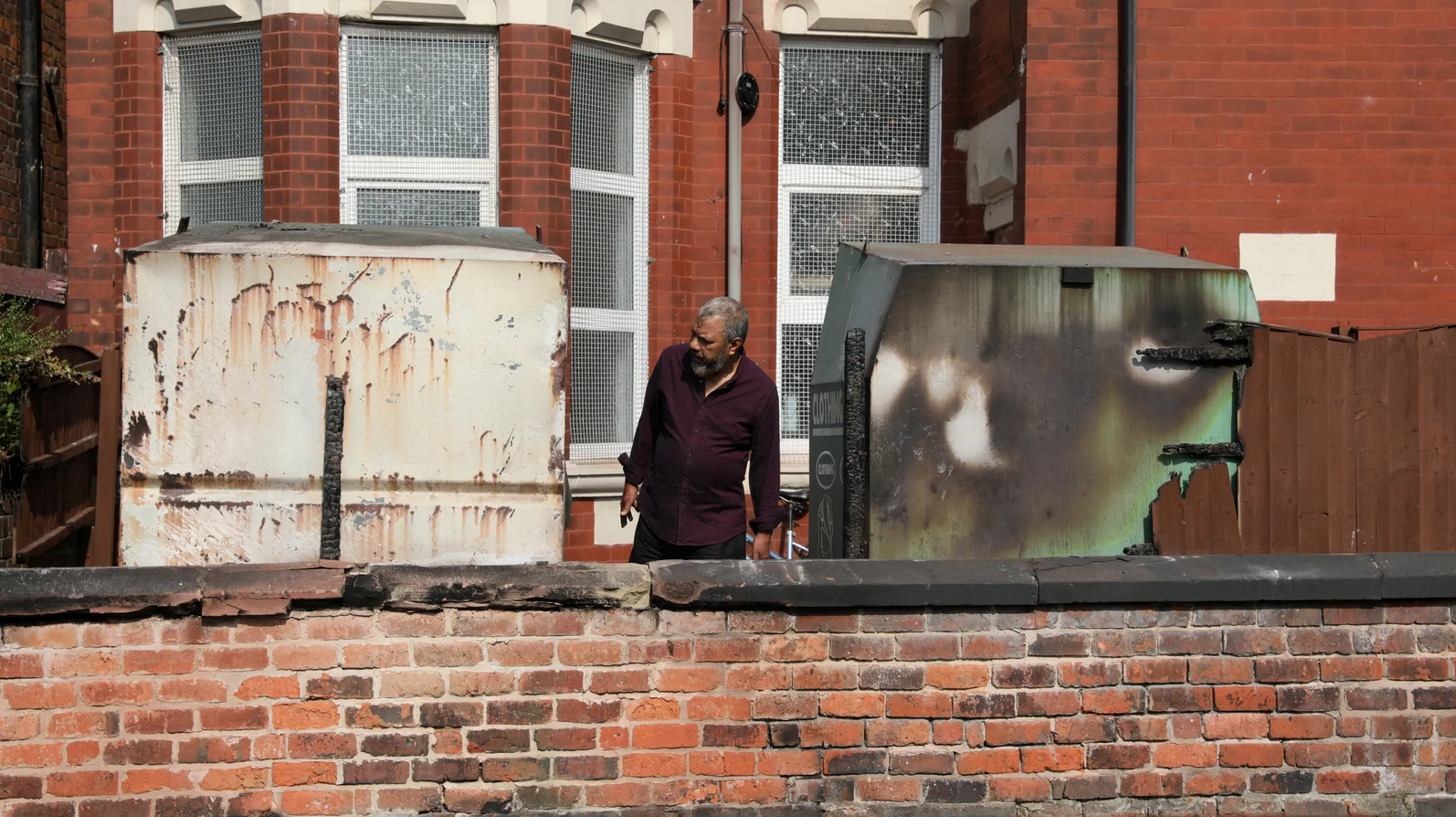
The leftist people did not remain silent and demonstrations were organised against these mobilizations. It was also possible to see solidarity gestures worldwide, bringing the case to the door of the Big Week of San Sebastian, for example.
I wasn't the Maghreb murderer in Southport. Not even the immigrant. Axel Muganwa is a 17-year-old, family member who escaped the Rwandan genocide and killed three girls he brought to life. Born in Cardiff, the town of Banks, near Southport, collapsed. These circumstances were disseminated by the prosecution the same day after the murder, as, in principle, he could not do so because he was a minor of Muganwa. The Prosecutor's Office said it was going to make an exception, as the situation on the street was getting too hot. He gave a lot of details to cut the legs of racist speeches. But, in part, it did not stop fascism, as the extreme right continued to lie in the coming days and weeks. Millions of visits, including dozens of news and misinformation from networks pointing to the murderer being a Muslim migrant in Syria. How many users were going to believe that the one who committed this barbarism was the Muslim migrant in Syria? And how many would they dispute the information after what the Prosecutor's Office said? Many would be lost along the way.
Something similar happened at the end of August in Spain, in Toledo. A 20-year-old man stabbed his 11-year-old son in daylight and stabbed him with a gun. It was appalling that a number of messages had also been broadcast on that occasion. False hypotheses, created by people, grass to feed hatred.
Lying, on the net,
doesn't have a short path. But it has become obsolete, at least in the field of social media. The interested in knowing the truth and being informed is interested. And it would lie on the net, day by day, thousands of lies. But it is possible that over-production of networks has not sufficiently belied lies. The truth is that, in the end, lying has a longer path on social media, much more than the truth.
Ask if not the “journalist” Javier Negre. He was the editor of the newspaper El Mundo with the traditional Spanish right hand, in which great figures from the Basque literature such as Euskal Herria also appeared. He wrote, in his own way, news related to ETA and the Basque Parliament, largely according to the Spanish PP. It became more known later, in 2016, when journalistic deontology broke to her liking, behaved with great injustice and was condemned: she spied on a female victim of male violence, to the point of hitting her door and entering her, believing she was a friend of a friend, exceeding all ethical codes. All the stripes were small. It was the desire of that “journalist”, who has publicly expressed his pride, demonstrating that the ill-treatment reported by that woman was “false”.
Negre and 'Eda' have been condemned a dozen times for posting lies and hate messages
Negre, therefore, became a spokesperson for the cursed who think that women “correct” and “exaggerate” mistreatment, doing, according to him, “investigative journalism” and “honest journalism”. Since then, he has claimed “an independent, free and free journalism”, and to do so, to continue doing whatever he wants, he created the television channel and “means of communication” of Youtube State of Alarm (EDA). It has nearly 400,000 subscribers. From there and another “radio” he has recently created, they have spread hundreds or thousands of lies, both he and his workers. There are many rumours that it receives funding from some party or foundation from the far-right.

Lying has a long way to go in the networks, and the truth isn't as much as Negre knows. At least, in the last five or six years, Negre and EDA have been condemned a dozen times for publishing lies, erroneous data, insults, messages that can feed hatred, sensitive information and others. Many times feminists, and in most cases immigration. Broadcasters have been temporarily closed to them on several occasions and courts have always forced them to rectify and declare that the published information was not correct. That is the punishment for malpractice in journalism; the small fine and the publication of the correction. These penalties are short.
Spreading lies goes cheaply and their impact, or whatever they may have, can be very serious. As far as hatred is concerned, it is clear. For example, look at the news published by EDA and the following headline: “On the Madrid metro a man has been stabbed screaming that Allah is great.” It was all lie. The local police immediately denied the news, as it appeared to be a man of Arab origin who struck another man with an umbrella. Not a cry from God. By then, however, the news had already received about a million visits to the networks and, due to the trending that the algorithm supposed, this headline continued to reach more people. They corrected the news and erased the other, but the screenshots he had taken from his owner continued to circulate, for which there are troll, fake accounts, to disseminate certain information.
The points to ask ourselves are three: How many people would believe the news? And of all those who believed, how many would they really see? So how many of you have stayed on the road, believing in lying?
More than half of young people between the ages of 18 and 24 in 46 countries around the world use social media to be supposedly informed
Take another example, that of the same “media”: “The Juan Morejón school in the city of Ceuta is burning on fire right now, after being attacked by the Moroccans who arrived illegally in Spain”. In a few hours, the centre ' s management stated in a statement that there had been no fire in the area. And the Municipal Police and the fire brigade didn't know about it, because it didn't even happen. There was no conflict with the “illegally arrived Moroccans”.
For these two fake news have asked Negre in TV3’s documentary La xarxa ultra (“Far-Right Social Networks”). Negre, the Catalan journalist who asked him, David Bou, tries to put Negre in a hurry, but it can be said that he justifies the two cases, although it is obvious that he does. He doesn't ask for forgiveness or accountability. In a way, his discourse is limited to saying “these things happen”, which occur “unintentionally” in a world as alive and as fast as journalism.
One of the axes of this report will be this audiovisual that will be broadcast for just over an hour. [David Bou has written opinion articles until recently in ARGIA. Among other things, he wrote this dedicated to the theme of the documentary]
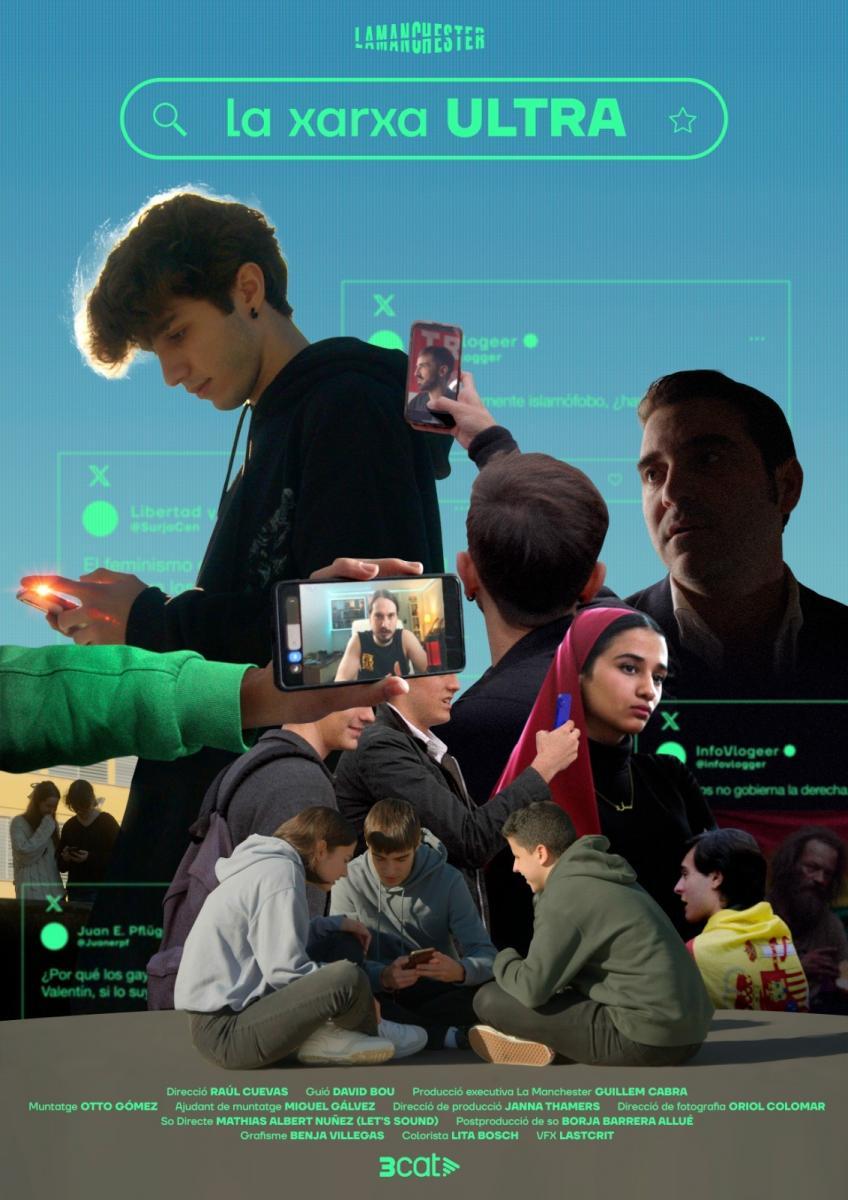
In these post-modern
times the extreme right offers an “alternative” in Europe. The flag of feminism is more institutionalized than ever before, also that of environmentalism, although in practice we could discuss to what extent it is worth ... Well, what the far right offers is to fight against these institutionalized progressive opinions, which is “liberating”.
But that ‘offer’ of the far right is not only political terms, but the way to offer it is also vitally important. The ultraderecha does not appear only in conventional media or does not use them exclusively. Its strategy has been to create an ecosystem of its own. He has created media, this is the case of Javier Negre and EDA, but many of the so-called “creative content” in the networks are also under his mantra.
To understand why this strategy and the influence of the extreme right on young people, we have to cross this data: asking the population between 18 and 24 years of age from 46 countries in the world, almost half use social media to be supposedly informed, according to the Digital News Reports report. The networks that use the most are respectively: Instagram, Tic Tok, Youtube and Twitter. Young people who at some point consult the media are the other half, but in this group, nine out of ten use social networks to keep themselves informed and consult the media.
“The dictatorship of
the left” Supra-media phenomena are not things this morning. A good example is Patriosphere in France. It was developed in the first decade of this century, along with the dissemination of the Internet, on alternative websites, blogs, pages or groups of Facebook and Youtube channels. These were "voices that the media rejected." Many of today's "content creators" on social media say the same thing.
Miguel Urbán, book 'Trumpismos': "The aesthetics of the counterculture, to be nonconformist, is to be alt-right; that is the victory of the far right"
But Patriosphere was not a homogeneous and unique group, as discussed by political and political politician Miguel Urbán in his book Trumpismos (Verso Libros, 2024): “Patriosphere showed the plurality of the extreme right. There were identity and traditionalist Catholics, neo-Nazis, an alternative right ... All against the dictatorship of the left. Today we are also seeing it, and it is the same term, the dictatorship of the progressives.”
The extreme right now uses those that have historically been the slogans on the left. Freedom, for example, or prohibition, of May 1968. They have a great ability to assimilate terms, as Urbán says in the book. And that is that the great victory of the far right has been precisely that, the aesthetics of counterculture, of nonconformism, of being alt-right, of yours.
As cultural advances integrate into society, such as feminist and ecologist discourse, being nonconformist has become a struggle against it. Therefore, as explained by the sociologist Iago Moreno in the documentary La xarxa ultra, the ultraderecha presents itself as an alternative. But being “counterculture” is also acting outside the usual institutional policy. Therefore, the influencers come together in this profile. Therefore, their messages do not have a direct relationship with the parties. In the words of Miquel Ramos, a journalist and expert in the movement of the extreme right, “different subjects work easily, from points of view that are of interest to the extreme right”.

Although we have said that the messages from the far-right influencers have nothing to do with institutional policy, they have to do directly with election cycles. Yes, at least, in the audience data. The journalists of the aforementioned documentary have calculated the visits to the Youtube channels of content creators of the Spanish extreme right, in Spain, in the periods in which last year two more significant elections were held: the municipal and foreign elections of May and the legislative elections of July.
In particular, in January, in the absence of four months for the first elections, these channels recorded around 1.5 million visits. In May, at the time of municipal and foreign elections, six million visits. The elections in that month of July were urgently convened, with more than 20 million visits to those legislative elections. That is, between January and July of that same year, with two important elections in the interval, the figures multiplied by thirteen.
The “cultural struggles” of the sectarian youtubers, the Spanish Isaac
Parejo, better known as InfoVlogger, has spent seven years in the so-called “cultural struggles”, through the Youtube channel – with 400,000 subscribers. It fights against “those who lead the world in decline”; it refers mainly to feminism and migration.
TV3 documentalists have gone home. He's got a big Donald Trump banner hanging on the wall, Make America Great Again. You have already said that you voted for the ultra-right Vox party in Spain, but you do not do so too often. It does not refer, in general, to political parties, if not to criticise them, that is to say those on the left.

“I’m against progressism,” he says with a t-shirt with the rainbow of the LGTB movement. It has rainbow, but the acronyms of its t-shirts are other: (Free-Armak-Brussels-Beer). He has often proudly said that he is homosexual and of Vox. It is in the foam in recent times, in which speeches against the Maghreb are spreading, because it says that it looks “endangered”: “I am against Islam, because Islam punishes my homosexual identity. They would hang me in their countries. That’s why I don’t want Muslims in Spain.” It limits its discourse to that simplicity, and that makes it successful.
In part, the same thing happens when some youtubers or influencers have made their private lives: going to live in countries that are tax havens to pay less taxes. “Otherwise, Hacienda takes away a lot of money, so much [figure].” Of course, he who is lying on the couch has certainly never seen so many figures, so he will find it barbaric what a miserable Hacienda is doing to him; that is why, at least, he can be made to understand the decision that that youtuber has taken, and perhaps the one who has consumed the speech in its entirety would defend the decision in an informal debate on the street. “I would do the same if I made so much money, wouldn’t you?” At the same time, the influencer has won this cultural struggle.
That is precisely why the gravity of the situation is so worrying, because these speeches and decisions are normalised. And you can't discuss messages in general, on social media, you can't make a real exchange of views. It is no use, responding to the other, explaining on X or on Twitter what the tax system is, leaving comments on a video that has thousands and thousands of views. And that, if the owner of the video doesn't erase the comment message, for example, on Youtube, because he has the exclusive competence for it.
Iago Moreno, sociologist: "New spaces for political debate have been opened, and those moments happen many times when people are vulnerable"
On the discursive logic of populism, the Argentine philosopher Ernesto Laclau, in 2005, clearly said that empty meanings unite fragmented citizens. Semantic indetermination can become the meeting point of this political community, establishing a common “enemy”. Only the forms have changed a lot since Laclauk said to this day. The background is still there.
Nowadays, the online and offline lives of citizens are dichotomies that do not exist. They go together, no doubt. And that has meant that the classic way of making politics has become obsolete. There's change, in society's thinking and attitudes. When we wait for the bus, at home at rest... Think about how many posts we can go through. The sociologist and expert in online propaganda Iago Moreno says that these moments are very interesting: “New spaces have been opened for political debate, and these moments happen many times when people are in a situation of vulnerability; they become uncontrollable.” You'll see information that's a lie, and you'll think it's a lie -- or maybe it's not -- but you've gone through it, without thinking too much about it.

The tendency to keep the incumbent is also indicative. For example, this September 3 news: “Venezuela’s president, Maduro, has advanced Christmas and will celebrate it on October 1.” Many jokes have been heard and read here and there, many more, because Maduro is crazy. Those who have not wanted it have not sought, nor have they known what this action entails in Venezuela, which helps poor neighborhoods to meet their needs.
Dalas José Santomé
Lemus or Dalas Review, the 30-year-old influencer, better known as Dalas Review, said in a video: “The religion of this century is feminism. I mean, believing in things that don't exist. For religion [speaks of Christianity], as is the figure of Satan, he is responsible for all the wrong things, patriarchate for feminism. And patriarchy doesn't exist here. Middle East, Africa... Especially in the Middle East, there, it’s crazy.” Look at the fact: this guy has 11 million followers on Youtube.
Another example: Adrià Núñez, youtuber de Libertad and whatever happens. His nickname in Euskera, literally, Freedom and what emerges from it. It has 316,000 followers on Youtube. With great galantry he says in the documentary of TV3: “I inform my followers a lot about feminism, because it is the greatest discrimination that exists today. Historically, many people have been discriminated against, including the Ku Klux Klan, the Nazis also against the Jews... All of them have started with defamation campaigns. The Jews control the world with such messages. What we're seeing is that feminism follows the same patterns, men control the world to get there."
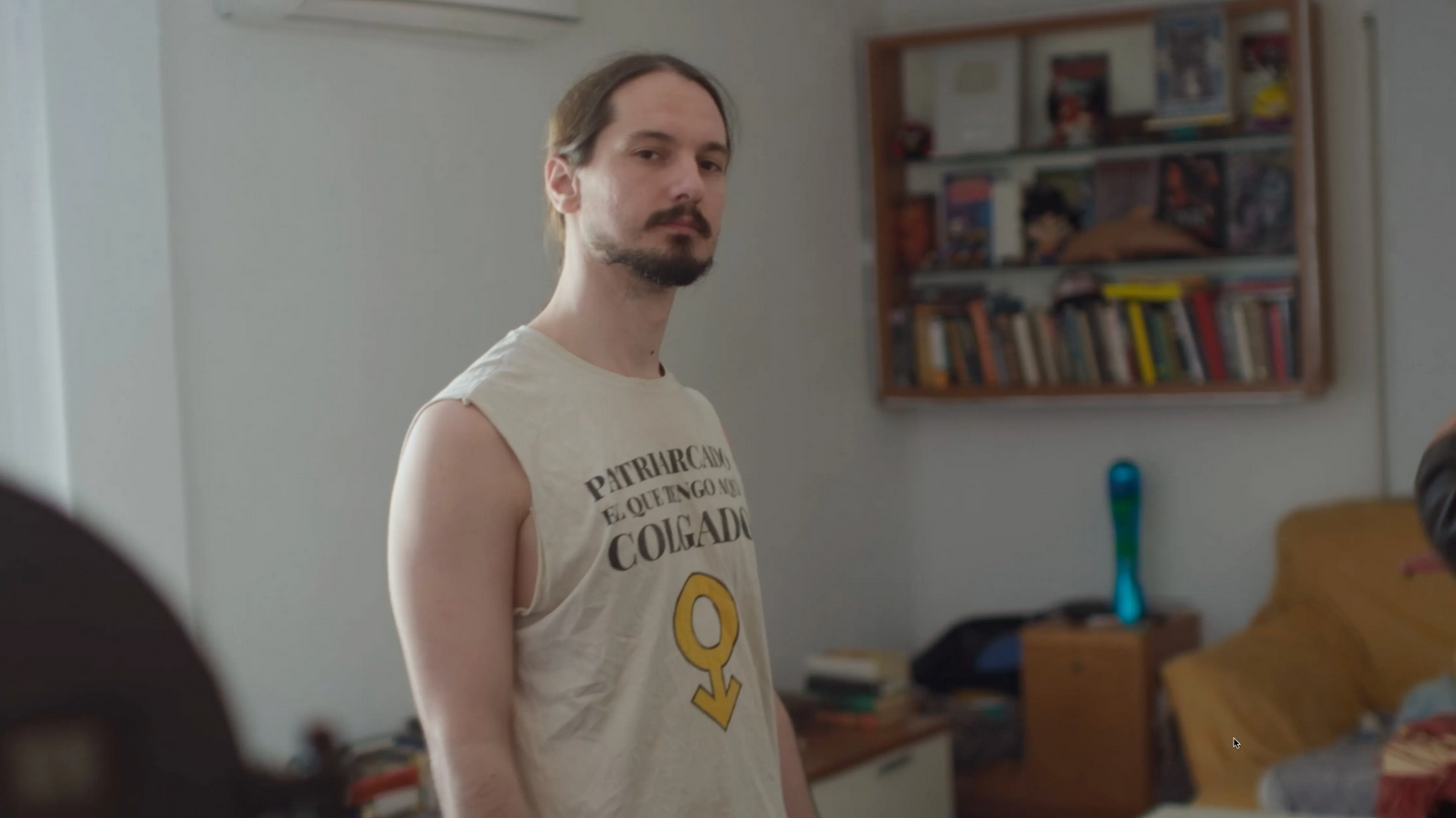
Having said that, in the documentary, the journalist asks if he feels discriminated against, today, in the Spanish State. “Feminism is undoubtedly the greatest discrimination that exists,” he says. “There are 500 laws that give privilege to women.” It refers to a reference blog for many anti-feminist Internet users, which speaks of “discrimination” point by point, without giving any explanation.
At the time of writing the report, around 530 “discriminations” are mentioned in this blog. A few examples to give you an idea. It is said that there are companies that are given incentives to hire women, that have access to easier public jobs – for example in the Ertzaintza – that can opt for a “à la carte” stop in the night lines of some cities and that men do not – it is a measure to combat male violence and to get home safe – that victims of male violence have “facilities” at work at the time.
They are simplistic and superficial speeches, not in-depth and stupid, but simply easy to understand. Among other measures, he stresses that the fact that man hits the woman is more severely punished than that of the beaten man. When the last youtuber we mentioned says so, he has a great debate with journalist David Bou, who asks him a few questions. The sequence remains as follows: Bou tells him how many women have been murdered by men in Spain, gives him the figure and youtuber gives him another piece of information, the “argument” used for defense by those who reject male violence; among all homicides, most of the deaths are men. The youtuber makes the argument a gilda: “But of course, in couples’ relationships there are more women victims, and there will always be them, because man has more strength.”
In this episode of the documentary are interesting the data that the journalist puts on the table, in which most of the YouTubers on the far right use similar and totally impartial sources to support the information they offer. One of them is the “blog of discrimination in favour of women” that we mentioned earlier, but also other sectarian companies that call themselves “research centres”. Some of them are from the United States, which is part of the ultracatological lobby. “The feminists are not going to show you the secure information I tell you, but those of the Spanish Ministry of Equality that only uses manipulated information from its sect,” says Youtuber.
And where is the left?
For Ezkerra, expert Iago Moreno believes that the battle is already lost, as stated in the documentary La xarxa ultra. In the social media game, the rules are not the same for the right and for the left. The right has always sought “emotions”, and Instagram or Twitter, for example, are tailored to the extreme right: “Emotions based on concrete actions, aggression, antagonism... On the contrary, the moulds on the left, the ideas for creating solidarity networks, emotions such as empathy, occupy very little space in social networks”. Moreno believes that the left has to assume that this is the case.
Guillem Suau-Gomilla: "Social issues are changing faster and faster, which in many cases prevents in-depth reflection, which opens the door to simple, populist ideas," he added.
The way politics is becoming a fast food: hard, fast and processed. Catalan professor and researcher Guillem Suau-Gomilla speaks of McDonalization of politics, a term that confuses with the idea of liquid society given to him by sociologist Zygmunt Bauman. Suau-Gomilla wrote an interesting article in the research journal CR01, published in March 2023 by the Communication Department of the Pompeu Fabra University of Barcelona.
This is what Suau-Gomilla says: “The issues on the social agenda are changing more and more rapidly, which makes it difficult and in many cases impedes in-depth social reflection on this issue. This opens the door to populist ideas, simplifies messages, finds simple solutions to problems, distinguishes between the good and the bad of history and, in general, the result is that marginalized groups are trampled underfoot more. Social media is the perfect speaker to give voice to all of this, because they're custom-made. Therefore, if society is increasingly dependent on social networks, it is clear who benefits.”
Simplifying messages makes it very difficult to tell the whole truth.
From the lie to
fear, George Orwell assured that history had been interrupted in 1936 and that since then there have been no more than propaganda. Many others have said that the truth was the first victim of World War I. The Dreyfus case is also there, which happened in 1894, is a clear exponent of truth and post-truth, and that looks good in J'accuse, of Roman Polanski.
Lying consists, by definition, of thinking with the intention of fooling or of saying the opposite of what you feel. But the word "lie" itself is short. Once there is talk of a great expansion difference, it seems that this is why new terms have appeared. That's why I play in Spanish and fake news in English. In Euskera, the Elhuyar dictionary says it's about amen-omenka.
The human being has always moved in a threatening and honoured way, especially in times of crisis, when there is fear. Because the man who is afraid is the easiest to govern. And the easiest thing to generate fear is to spread lies, as detailed by Miguel Urbán in his book Trumpismos: “Anti-immigration messages, hate noises, false or simplistic arguments are being normalized, without providing reliable data or sources.”
There is no need to go too far. In recent months at least two racist messages have appeared in the Donostia-San Sebastián area, one in the middle of Aste Nagusia and the other on the Hernani road. “Outdoor immigrants”, accompanied by a lauburu. And there is nothing in common about the analysis that journalist Zigor Olabarria wrote in number 2,854 of ARGIA – the anti-Basque systems of Vox. It was the case of a class in Vitoria-Gasteiz, whose students would participate in the demonstration called by the union of this far-right party. “You can’t imagine what an extreme attitude they have against the Basque Country and social benefits,” the class professor said.
From lying to fear, to be nonconformist and anti-system is, today, to be far right. The bellows that social media give to those messages, that's terrible.
Euskal Herriko Mugimendu Feministak aurtengo Martxoak 8ko mobilizazioak "faxismoaren, erreakzionarismoaren eta zapalkuntzaren aurkako aliantzak" ehuntzean ardaztu ditu.
Kepa Kortak Naiz-en idatzitako “Musikariaren jakituria” artikuluan faxismoa definitzeko... [+]
Errumaniako presidentetzarako kandidatu ohia Călin Georgescu, aurten berriro iragan behar diren hauteskundeetara erregistratzera zihoalarik, Poliziak atxilotu zuen otsailaren 26an. Egozten dizkioten krimenetarik bat “ordenu konstituzionalaren aurkako ekimenen... [+]
Martxoak 8an egindako pintaketak gainetik margotu dituzte ikur faxistekin Zuberoako hiriburuan. Horren aurrean elkarretaratzera deitu dute, astelehenean.
Behe bandako zutabea bezain erlojuaren aurka prestatzen ditut mozorroak, korrika, aztoratuta, zalantzaz, erretxin, estropezuka eta sarri arrakasta ez erabatekoarekin; adibidez, zutabe hau eta biharko mozorroa. Oraindik ez dakit bietako zein bukatuko dudan lehenago. Baina... [+]
Martxoaren 8a Getxo bere bizitokian igaro du: kumbia dekolonial eta antiarrazista topaketa antolatu du Algortako Herriko Tabernan, Abianen, Hija del Nopal DJrekin batera.
Argentinatik Getxora migratu zen Celeste Agüero, kantutegi herrikoi batekin eta poesia xuxurlatzeko... [+]
Alemaniako Poliziak asteleheneko gertakariaren arrazoiak "politikoak" zirela baztertu duen arren, 35 urteko Alexander Scheuermann Ring Bund talde neonaziko kide zen. Bi hildako eta hamar zauritu utzi dituen atentatuaren egileak sare sozialetan "gorroto mezuak"... [+]
Leporaturikoa ez onarturik, eta sare sozialetako kontuak "lapurtu" zizkiotela erranik, salaketa jarri zuen Arabako campuseko Farmazia Fakultateko irakasleak. Gernikako auzitegiak ondorioztatu du ez dagoela modurik frogatzeko mezu horiek berak idatzitakoak diren ala ez.
Martxoak 8a heltzear da beste urtebetez, eta nahiz eta zenbaitek erabiltzen duten urtean behin beren irudia morez margotzeko soilik, feministek kaleak aldarriz betetzeko baliatzen dute egun seinalatu hau. 2020an, duela bost urte, milaka emakumek elkarrekin oihukatu zuten euren... [+]
Ikerketa bat egin dute Alemanian, hauteskundeen atarian: kontuak sortu dituzte TikToken, X-n eta Instagramen, eta aztertu egin dute algoritmoak zer nolako edukiak erakusten dituen. Guztietan, algoritmoak eskuinera eta eskuin muturrera jotzen du gehien, TikToken nabarmen.
Ekitaldian, Mileik motozerra bat oparitu dio Muski, murrizketa sozialen sinbolo eta aldarri gisa.
Sozialdemokratek inoizko emaitzarik kaskarrenak lortu dituzten arren, litekeena da demokristau kontserbadoreekin elkartzea eta gobernua osatzea. Botoen %28,5 jaso ditu CDUk, eskuin muturreko AfDk %20,7 eta SPDk %16,4.
LGTBIQ+ banderaren itzalpean eta mezu eta doinu antifaxistez inguratuta jarri du karpa Voxek.

















